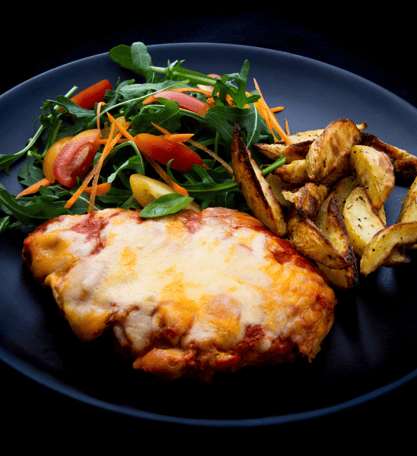Easy Weekly Meal Planning Tips for Busy Families
Build a simple, flexible weekly meal planning habit that reduces stress, saves time, and helps you eat better—without overcomplicating your week.
MEAL PREPHELPFUL TIPS
5/4/20252 min read


Meal planning doesn’t have to be time-consuming, restrictive, or overwhelming. In fact, when done simply, it can actually help reduce stress, save money, and make weeknight meals feel less chaotic.
If you’ve tried complicated meal plans in the past and found yourself abandoning them by midweek, you’re not alone. The key is to create a meal planning habit that fits your real life—not your ideal one.
Here’s how to build a weekly meal planning habit you can actually stick with.
1. Don’t plan every single meal.
Start with just 2–3 dinners and a few flexible basics. This takes the pressure off and gives you room for leftovers, last-minute changes, or takeout when needed.
2. Stick with meals you already know and love.
Instead of spending time searching for new recipes every week, keep a running list of meals your household enjoys. Rotate through these regularly and change up sides, sauces, or seasonings to keep things fresh.
3. Choose one day each week to plan.
Picking the same day (like Sunday or Monday morning) helps you build a rhythm. Keep your planning session short—15 minutes is plenty to check the fridge, write a quick grocery list, and sketch out a rough plan.
4. Focus on ingredients, not full recipes.
Plan around ingredients you know how to use: cooked grains, roasted vegetables, canned beans, and pre-washed greens. These can be combined into different meals throughout the week without needing a full recipe.
5. Be flexible.
Plans change. When they do, move meals around, substitute easier options, or use what you’ve prepped in a different way. The goal isn’t to follow the plan perfectly—it’s to reduce decision fatigue and make healthier meals easier to stick to.
Bonus Tips to Help You Stick With It:
Use your freezer. Freeze leftover portions of soup, grains, or proteins to save yourself on busy nights.
Keep a “use it up” list. This helps reduce food waste and makes sure items get used before they go bad.
Batch one base. Cook a big batch of rice, quinoa, or roasted veggies to give yourself a head start.
Try theme nights. Ideas like "Meatless Monday" or "Taco Tuesday" give structure without being limiting.
Post your plan. Write it on a whiteboard or note on the fridge where the whole family can see it.
Things You’ll Love About This Habit:
It reduces last-minute dinner stress
It keeps your grocery list focused and budget-friendly
It creates more space for nourishing meals without rigid rules
It works even when your schedule changes midweek
Expert Tips for Best Results:
Start small—you can always add more meals later
Involve your family in choosing meals to avoid repeat complaints
Check your calendar before planning so your meals match your week
Keep a backup meal in the freezer or pantry (like soup or pasta)
Easy Healthy Recipes for Busy Cooks
Connect
© 2025 All rights reserved.




